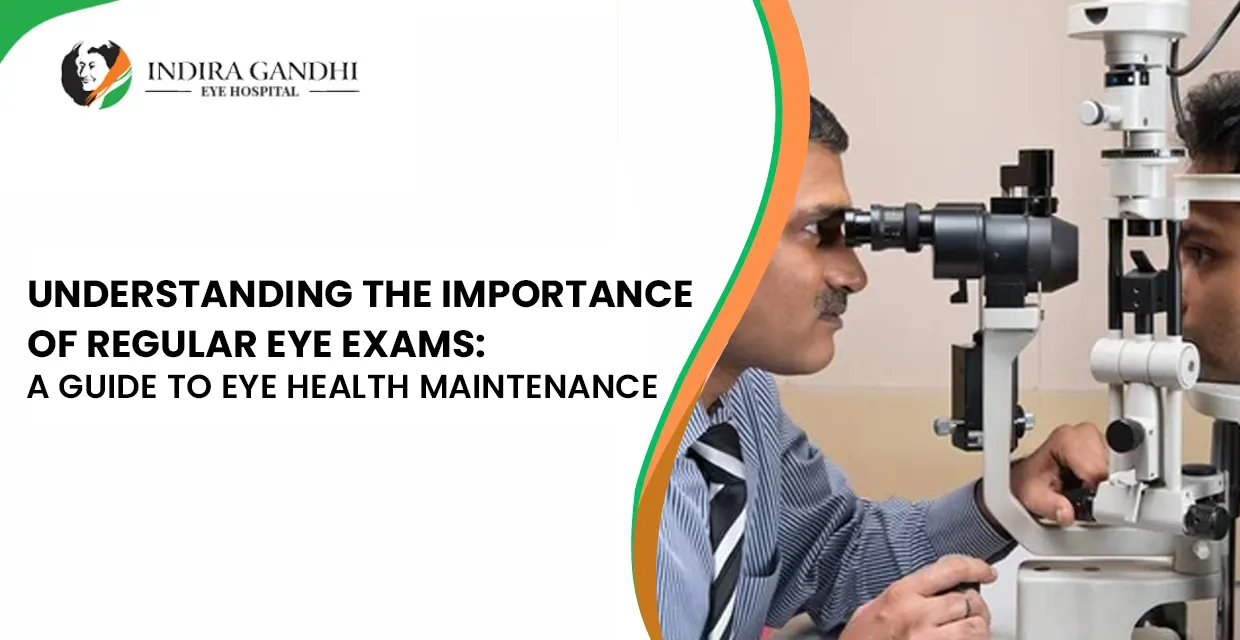Our eyes are often referred to as the windows to the world, granting us the precious gift of sight. However, it's easy to take this gift for granted until something goes wrong. Regular eye exams play a crucial role in maintaining good eye health and preventing vision problems. In this guide, we'll explore why regular eye exams are important and what you can expect during a comprehensive eye examination.
Whether you're in Lucknow or elsewhere, prioritizing regular eye check-ups can ensure that your vision remains clear and healthy. As one of the best eye hospitals in Lucknow, we understand the significance of proactive eye care and encourage everyone to schedule regular examinations to safeguard their vision.
Why Are Regular Eye Exams Important?
Regular eye exams are essential for several reasons:
Early Detection of Eye Conditions:
Many eye diseases and conditions, such as glaucoma, cataracts, and macular degeneration, develop gradually and may not cause noticeable symptoms in the early stages. Regular eye exams allow eye care professionals to detect these conditions early when they are most treatable.
Vision Correction:
Even if you don't have any apparent vision problems, your eyesight may change over time. Regular eye exams help ensure that your prescription glasses or contact lenses are up to date, providing you with clear and comfortable vision.
Monitoring Eye Health:
For individuals with existing eye conditions or risk factors for eye diseases, such as diabetes or a family history of glaucoma, regular eye exams are essential for monitoring eye health and preventing complications.
Overall Health Assessment:
Did you know that your eyes can reveal a lot about your overall health? During an eye exam, eye care professionals may detect signs of systemic conditions like diabetes, hypertension, and autoimmune diseases, allowing for early intervention and treatment.
What to Expect During a Comprehensive Eye Examination:
A comprehensive eye examination typically includes the following components:
Case History:
Your eye care provider will ask about your medical history, including any existing eye conditions, medications you're taking, and any symptoms you may be experiencing.
Visual Acuity Test:
This test measures how well you can see at various distances using an eye chart. It helps determine if you need corrective lenses.
Refraction Test:
If you require corrective lenses, a refraction test will determine your exact prescription for glasses or contact lenses.
Eye Health Evaluation:
Your eye care provider will examine the external and internal structures of your eyes using various tools and techniques. This evaluation can detect signs of eye diseases, such as glaucoma, cataracts, and retinal disorders.
Tonometry:
This test measures the pressure inside your eyes, which is crucial for detecting glaucoma.
Pupil Dilation:
In some cases, your eye care provider may dilate your pupils to get a better view of the retina and optic nerve.
Regular eye exams are an integral part of maintaining good eye health and overall well-being. By detecting eye conditions early and ensuring proper vision correction, you can preserve your precious gift of sight for years to come.
Don't wait until you experience symptoms or notice changes in your vision; schedule a comprehensive eye examination today and take proactive steps towards optimal eye health maintenance. Your eyes will thank you for it.


